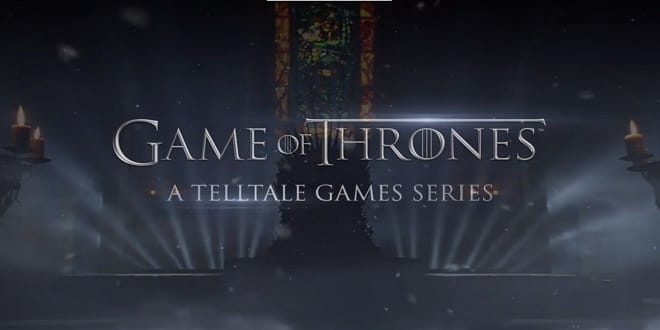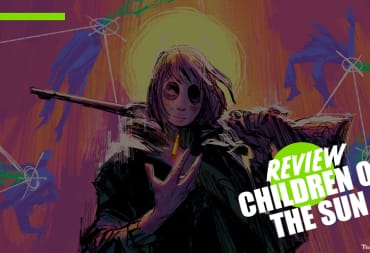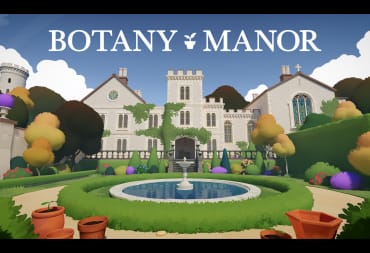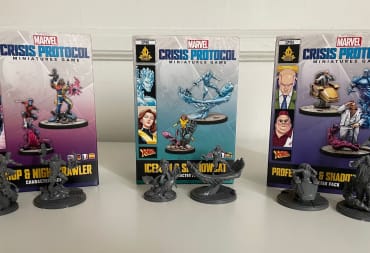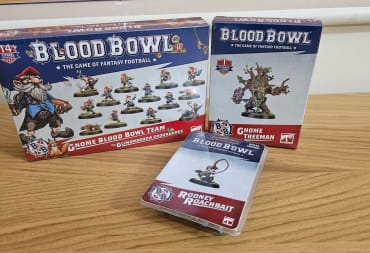Telltale tried to adapt the popular A Song of Ice and Fire series into a narrative-driven adventure game in their own Game of Thrones. A rich world filled with deep history, intrigue, deceit, and more seems the perfect backdrop for just about any medium—this is particularly true for the narrative-driven Telltale style. While Telltale does a good job of making you feel as though you're in Westeros, it ends up being a less than middling entry into their growing library of games.
Telltale's obvious love and care for the source material is both its greatest strength and biggest area of weakness in Game of Thrones. Its world is full of the conniving backstabbers we're used to seeing in King's Landing—the place where nothing is as it seems, and you don't really know anyone's true intentions is just so in Telltale's Game of Thrones.
Those sadistic, downright evil some of the time, characters show up—sometimes to wonderful effect. This is where the first slip up seems to come in that these characters are often relied on far too much to create tension, drama, and used as devices to move the plot forward. With that said, some of the times those moments can be pretty great. It also does a good job at characterizing the world's theme that those with power will not only take advantage of those without it, but brutally destroy any attachment to what little the almost powerless have just so they can have it instead.
Telltale even does a serviceable job in characterizing and writing the dialogue for characters we are already familiar with in the series, even using the actors from HBO's Game of Thrones to do the voices, as well as using their likenesses. Most are used to great effect, and Telltale's uniquely created characters fit right in next to them much of the time.
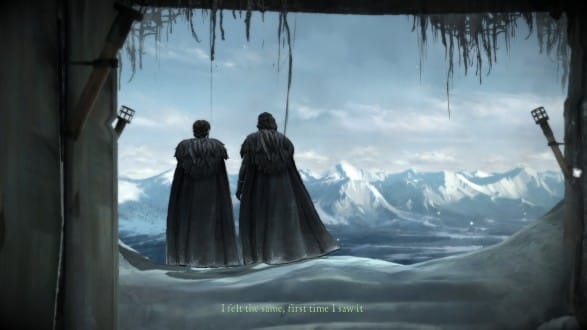
However, one of the biggest weaknesses is that far too many of the characters share way too many similarities with characters already established in the Song of Ice and Fire universe. The main family the plot revolves around, the Forresters, is full of just off-brand Starks, repackaged in less compelling versions. The game even has its own Joffrey in a sense, Baelish, and more, all of which come off as archetypal due to the lack of time we actually get to spend with them.
While not quite at fan-fiction levels, Telltale's passion for A Song of Ice and Fire definitely comes as a detriment to the plot too. It certainly allows for some tense moments and truly difficult decisions, but comes off largely as a caricature of the most well-known aspects of the source material—those being that no character is "safe" and the shocking brutality found in human nature.
After playing through the season, it almost feels as though many of the wide array of characters were only introduced to create some small attachment to then just be killed off, or otherwise removed, later. Sure the source material does that often as well, but at least most of those feel justified. Here it just feels as though characters were killed off to give some sense of drama. As I mentioned in the review of the final episode, that sort of bloodshed is only compelling when there is some significance behind it.
The season follows multiple plotlines, some of which seemed to exist just so we could see certain parts of the world, such as Asher Forrester. Others, like Gared Tuttle, were compelling due in large part to the unique content; while the plot was not all that unique and is something pretty common in fantasy, it was Telltale's only real genuine foray into something a little bit new in this established universe, which made it far more compelling than the others. Gared's stood out because all of the others got into an expected rhythm after only a few episodes, in that we knew which way outcomes would lean in terms of good or bad, often with a good sense of what outcomes would be. Gared's plotline was nice and curvy, where all the rest seemed full of straight lines and obvious angles.
With the amount of unanswered questions left at the end of the season, and the questionable standing of some characters based on decisions near the end, Season 1 feels much more like the foundation for something more. It's only just now that we are understanding everything we need to in a story with this many converging plotlines and points of view that it's a shame we're left hanging until we see where the cliffhangers of the final episode lead us.
In the end, the plot is a little more than serviceable and will appeal to most people, though fans of the established universe, and lovers of narratives in general, may be a bit disappointed in the shaky execution.
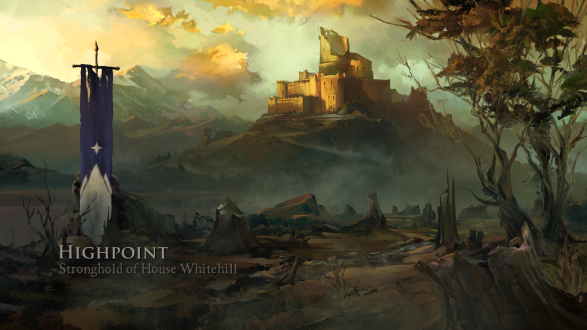 While Telltale does a pretty good job of making the main characters you interact with fully realized, their ultimate significance in facilitating a players feeling of creating their own story outside the confines of the plot is fairly lacking. There are many decisions to be had throughout the episode that will affect the narrative—how certain characters think of others, who lives or who dies, the fate of some smaller characters, relationships between characters, etc.—but they often only play a small role in the moments surrounding that decision. You could make a choice that would anger one character, but even a few scenes later—and especially an episode or two later—it was as though the choice never happened.
While Telltale does a pretty good job of making the main characters you interact with fully realized, their ultimate significance in facilitating a players feeling of creating their own story outside the confines of the plot is fairly lacking. There are many decisions to be had throughout the episode that will affect the narrative—how certain characters think of others, who lives or who dies, the fate of some smaller characters, relationships between characters, etc.—but they often only play a small role in the moments surrounding that decision. You could make a choice that would anger one character, but even a few scenes later—and especially an episode or two later—it was as though the choice never happened.
What's worse is that those decisions don't seem to have much to do with the context surrounding the plot. What I mean by that the plot is largely set in stone, but even how certain characters arrive to most plot points is rigid as well. For example, one would think that continually siding with one character over another would make the slighted one a little perturbed. Maybe it's not a stretch to assume that character would still agree to go with you on something of a suicide mission—or something equally weighty—but you would think there would be some hemming and hawwing, complaining, about things you've done in the past to piss them off, at least a mention of it. Nope. It's like all those times in the past you took away opportunities, did not trust their judgment, denied their chance at revenge, and more never happened. The fleeting moments give a quick pavlovian feeling of agency, but never go beyond it.
This is no more egregious than in most of the decisions where you choose whether certain characters live or die. More often than not, Telltale has an extremely similar character waiting in the wings to replace and assume the same role as if nothing happened. While certain twangs of dialogue may be different, the meanings behind the words, as well as the emotions/motivations, remain largely the same. Characters with similar attitudes, similar relationships, and similar states of mind are readily available to replace their personality copies at a moment's notice. Other than that, most others are minor character's whose fate you may decide but the consequences of which never return.
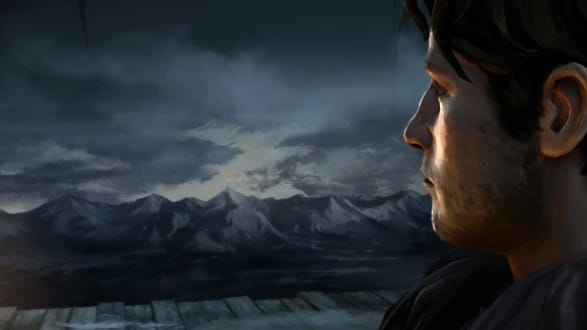
Gameplay is largely dialogue choices, many of which give the impression of weight, but don't seem to be all that important in the end. The same can be said for many of those decisive moments that Telltale decides to add extra drama to. Fates of characters remain the same regardless of choice—excepting some minor characters—as is the tone and content of many of the scenes. Fairly typical Telltale.
One thing Telltale really needs to stop doing is forcing little mini games on the player. Nobody wants to use a poorly designed and unfun bow and arrow mechanic. It's just the same mechanic as everything else, where as long as you get the cursor in the general area, whatever you want to do will trigger. The same can be said for all the other little things Telltale thinks are necessary to break up the tedium of constantly choosing dialogue. They aren't. Let us explore the areas you've created, find clues and other items to give a greater sense we actually have some sort of agency in what the character knows instead of shoving us from one scene to the next.
The final bit to the gameplay is the "action" sequences. Several of these actually feel quite tense, creating a feeling that you could fail at any moment. However, we have to remember these are all just Quick Time Events, so even if they were taken to their furthest potential they'd still be QTEs in the end. They do nothing remarkable and just seem to give the player something to do instead of dialogue choices.
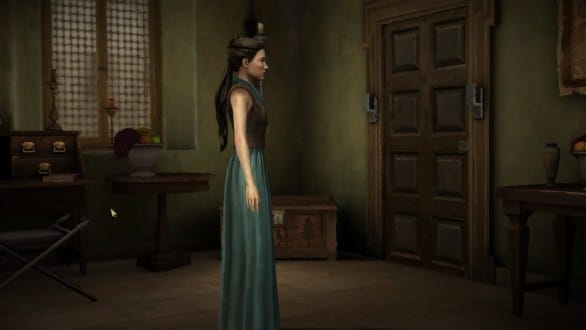
Lastly, the technical bits. Telltale really, sorely, dearly needs a new engine to work on with their games. The same issues that have plagued their games for years now continue to be an issue, almost more so with the amount of projects they have going at once.
Dialogue constantly gets cut short and unintentionally dropped. Sound effects don't match up with what is going on on the screen. There is a ridiculous amount of clipping and lacking texture work. Animations are rigid and the obvious product of too little time. The list goes on and on.
The music is rather good; however, that is largely just taken straight from HBO's Game of Thrones. As for the art style, it almost always looks like a blurry mess most of the time. The oil painting aesthetic is one of those things that sounds sort of neat on paper, but upon execution just makes everything look a little muddied; it was almost as if everything has really bad aliasing issues. Though, art is largely subjective to each person's own taste, so your experience may vary. However, the hand drawn bits that show up periodically are absolutely gorgeous and well-done.
All in all, Telltale's Game of Thrones Season 1 is a season of misused and poorly executed potential. They set themselves up to have the ability to do great things, but either poor decisions, poor execution, the lack of time, or a mixture of all three led to something that is disappointing, considering the obvious craft that went into some parts of the writing.
Season 1 is almost like a house you built with a solid foundation and frames, but some of the walls are inexplicably at weird angles. The water temperature isn't steady and for some inexplicable reason it takes a few tries sometimes to get a light switch working. And who put that bathroom sink in the way of the door so it only opens half way?
You can live in it, but it'd be hard to forgive yourself in knowing you could do better.
This game was purchased by the reviewer and reviewed on PC with a controller.
Review Summary
Season 1 can be defined by its misused and poorly executed potential, leaving behind something a little better than average.
(Review Policy)Have a tip, or want to point out something we missed? Leave a Comment or e-mail us at tips@techraptor.net
